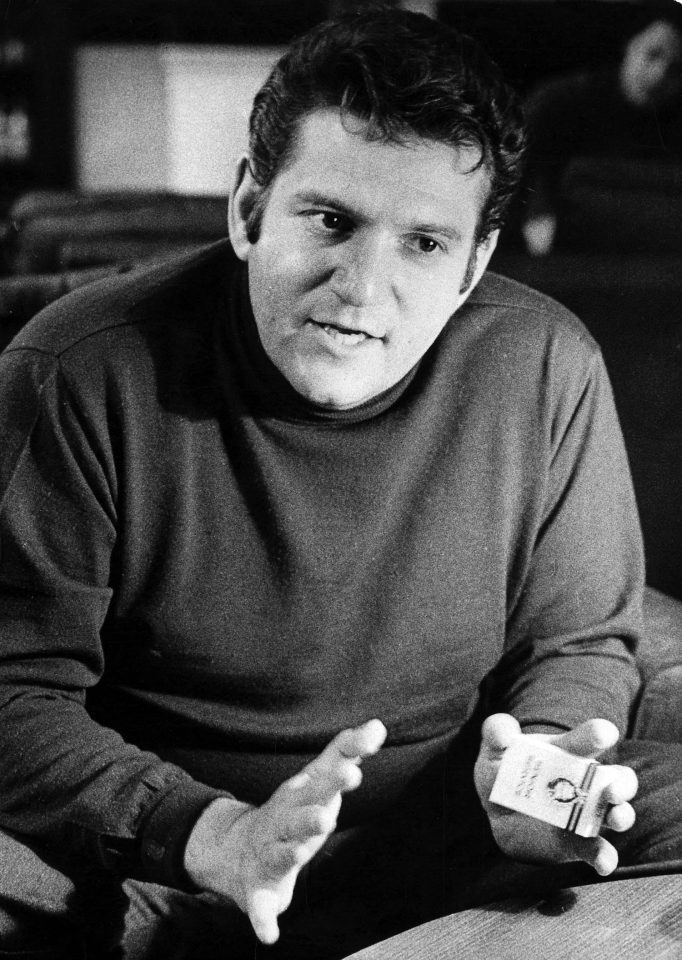The Beatles, Allen Klein and John Eastman held a meeting at the Apple HQ, 3 Savile Row, London, in which Klein was formally appointed The Beatles’ business manager.
Klein’s immediate task was to closely examine the group’s finances, and to find a way to stop Brian Epstein’s former company NEMS, now run by his brother Clive, from taking a quarter of their earnings.
The decision to appoint Klein was seen as a fait accompli by Paul McCartney, who had wanted his future father-in-law John Eastman to represent the group. He was, however, outvoted 3-1 by the other Beatles.
John was going with Klein, and George and Ringo said, ‘OK, we’re going with John.’ I realised I was expected to go along with it, but I didn’t think it was a good idea – simple as that, really. Actually I asked Mick Jagger when he came round, ‘What do you think?’ He said, ‘Oh, he’s all right if you like that kind of thing.’ He didn’t really warn us off him, so there it was – and that then was the three-to-one situation.In The Beatles, if anyone didn’t agree with a plan, it was always vetoed. It was very democratic that way, so the three-to-one situation was very awkward and as a result ‘things’ would happen.
Anthology
It took some months for the agreement to be formalised. On 8 May 1969 John Lennon signed a contract appointing Klein “as our exclusive business manager”.
In London’s High Court in early 1971, during the hearing of McCartney’s lawsuit to dissolve The Beatles’ partnership, the following was read out as part of Allen Klein’s affidavit:
On the morning of 3rd February 1969, I went to 3 Saville Row and saw the four Beatles, John Eastman and a few principal staff members of Apple, who were informed that my company (then still called Cameo-Parkway) had been appointed to look into the affairs of The Beatles and all their Companies. At this meeting John Eastman agreed that he would, after all, act as legal adviser to The Beatles and all their companies.Apple issued two press announcements, one relating to my Company’s appointment and a separate one relating to the appointment as lawyers of John Eastman’s firm, Eastman & Eastman. Cameo-Parkway also issued a press announcement of its own, a copy of which is now produced and shown to me marked “A.K.4”.
On the evening of the same day, 3rd February 1969, I met Clive Epstein and Mr Pinsker at the Dorchester Hotel to discuss with them the possible purchase by Apple of the share capital of NEMS. Clive Epstein was then Managing Director of NEMS and Mr Pinsker’s firm, Bryce Hammer & Co, acted as accountants for both NEMS and The Beatles. I asked Clive Epstein if he would be willing to wait and defer a decision with regard to his disposal of NEMS for about three weeks until I had had an opportunity to assess the financial position of The Beatles and their companies. Clive Epstein agreed to defer a decision for at least three weeks. The following day I left for New York to begin an investigation into the three main sources of The Beatles’ income as a verification of their financial position. The three sources were United Artists Corporation, the Company which handled The Beatles’ films (“United Artists”), General Artists Corporation, which handled their American tours (“G.A.C.”) and EMI and its United States subsidiary, Capitol Records Inc. Formal letters of direction were issued by The Beatles to enable me to obtain the requisite information. There is now produced and shown to me marked “A.K.5” a bundle comprising copies of these letters and other letters referred to below.


It’s really, really, a shame that the Beatles could not have found a management strategy that they all agreed on. Various pressures were pushing them to do individual projects, but one could easily envision a scenario where each one would do his own thing for a bit and then at some point the group would get together and collaborate again, if it had not been for the nasty business dispute.